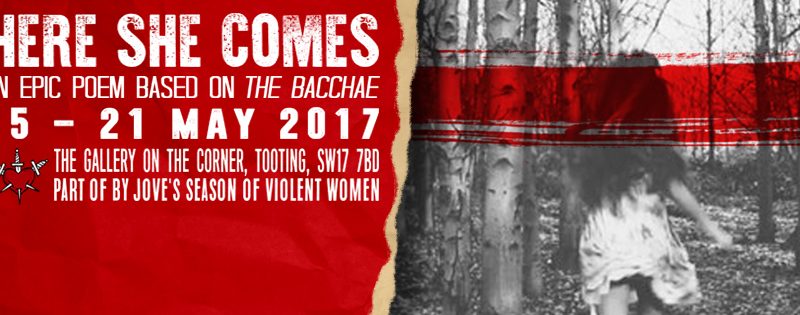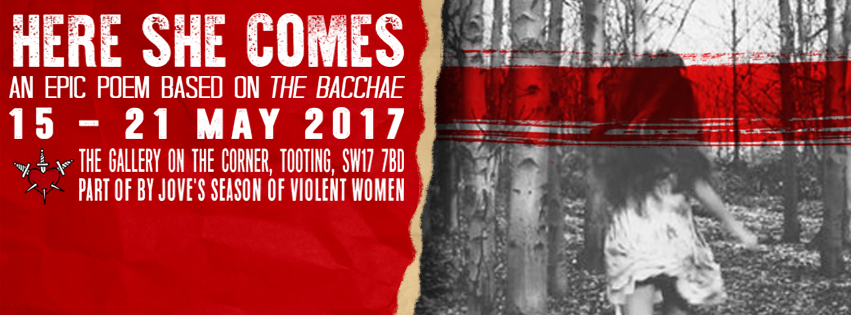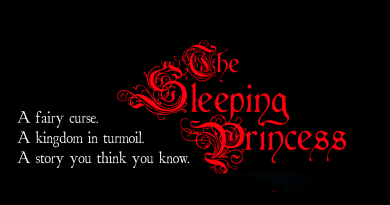Here She Comes – By Jove Theatre (at the Gallery on the Corner, Tooting)
– reviewed by Amy Russell –
What to expect?
I only had a fairly basic knowledge of the original play going into this. I knew that it was based on The Bacchae, Euripides’ final play, a story about order and chaos and godly vengeance. And ripping people apart. I did definitely know that bit.
Kinda primal, kinda collective…
But when I found the venue, I was met by fresh earth inside, with cushions and logs scattered around, vaguely facing a very battered looking sofa dwarfed by a fern. Around it was scattered debris.
So we seated ourselves on the ground around the sofa, there was something unifying about it, I started talking to the total strangers around us. And there was always the faint smell of the earth we sat on.
A wild spell of a performance…
It’s The Bacchae from the perspective of Agave (daughter of King Cadmus, later one of Dyonisus’s maenads), lonely, frustrated and seeking freedom from the banal life she is confined by. The performance by SJ Brady was superb, she kept the audience utterly spellbound, at times almost singing the cadences of the phrases. At times holding onto words, as her hands trembled with the emotion, or building to a resounding crescendo.
From the first syllable we were utterly caught. The opening was a strange, discordant blend of modern and ancient that set the story in every age.
A new point of view on a classic…
This was The Bacchae told from the point of view of a mother, pushed out and rejected as her children grew, diminished and neglected. It evokes the heartbreaking pain and loneliness of loving a child you bore, who lives a few walls away but no longer cares for you.
The music (by Vivienne Youel) wove perfectly into the performance. It was by turns haunting and dynamic and powerful.
The point between freedom and madness…
One of the central parts of the poem was Agave leaving her home and joining the other women on the mountain and the frenzy that followed. The idea of freedom, and types of freedom, what liberation truly means is one of the most significant themes. Agave leaves her home, and finds freedom in the mountains and follows Dionysus’s whispers in her mind. In the revelry, she loses her sense of self, until ultimately she, with the other revelers, rip apart her son who has come, disguised, thinking he is a lion.
And then when the madness leaves, she is left with the consequences of that freedom.
Throughout the poem the setting switches between an angry, defiant, anguished modern voice – visceral and coarse – and the ancient setting of the original story through the eyes of a woman. It is never made clear if it is the same woman, repenting ancient actions, but it made the emotions eternal. The frenzied, jarring nature of the poem, constantly switching eras, compelled the audience to actively try and maintain a sense of the same mental state as Agave, never quite clear, built the world up around us, enmeshing us with her perceptions.
An engaging and intoxicating performance…
During the performance wine was offered to everyone, in mismatched crockery. I think I had a milk jug. The rich scent of the red wine, the earth and the music and use of sounds grounded the audience in the story. Utterly swept along with the storyteller. I could barely remember how to speak at the end of the performance, returning to myself felt quite strange.
Which is quite fitting for a story of losing oneself and the consequences.
By Jove Theatre continue “A Season Of Violent Women” with Medea. And if it’s anything like as good as Here She Comes, you should check it out.




